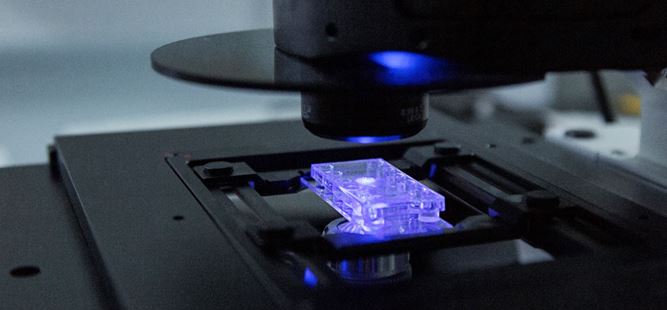Discovering why people who work nights are more likely to develop cancer
25th April 2022
Our researchers in the Netherlands have uncovered that a combination of higher BMI, waist circumference, and levels of several immune cells may be behind the increased long-term health risks of night shift work, including increased risk of cancer. The findings of the study could help to inform guidance around night shift work to protect people from increased health risks, such as those that increase your risk of cancer.

Night work and cancer
Many services and industries around the world rely on people to work through the night. In fact, 19% of European workers do so at least once a month. Some studies have found that people who work night shifts may be more likely to develop health conditions such as diabetes, cardiovascular disease, and cancer. We don’t fully understand why this is the case, but uncovering the underlying cause could help find ways to protect millions of people.
Some early studies suggested that night shift work might increase your risk of developing health conditions like cancer because it disrupts your natural body clock, or ‘circadian rhythm’. This effect is now thought to be caused indirectly because night shift work impacts on other health risks, such as obesity, physical activity, and diet.
However, your body clock does play an important role in health – it controls many biological processes including the makeup of immune cells, and higher levels of certain types of immune cells may be linked to increased inflammation, disease progression, and chronic disease risk.
 Professor Gijsbertus van der Horst
Professor Gijsbertus van der Horst
Professor Gijsbertus van der Horst and his team in the Netherlands wanted to find out if this could be the missing link between night shifts and some health conditions. The researchers recruited 1,062 night shift workers and 10,201 non-shift workers to study this effect. They asked them lots of questions about their work and lifestyle habits, took health measurements in a medical exam, and collected blood samples.
The researchers looked for links between all the data had collected and found an interesting pattern. People in the night shift group often had higher levels of some types of immune cell, compared to people who don’t work during the night. This was especially true for people who worked night shifts more often during the month or who tend to work more nights in a row.
Night work influences risk factors for cancer
Night shift workers were also more likely to be overweight (have a higher BMI) and have a higher waist circumference, both of which are important risk factors for cancer, diabetes, and cardiovascular disease. Interestingly, it didn’t seem to affect blood sugar, blood pressure, or cholesterol, which makes it hard to say why BMI and waist circumference were higher.
As the effects in this study were bigger the more night shifts people worked, or if they worked more nights in a row, Professor van der Horst and his team believe it could be possible to protect people from these risks by limiting the number of night shifts people are asked to work. This could help to prevent some of the health risks of night shift work that contribute to long term conditions like cancer.

Can working night shifts cause cancer?
What’s the take-home message?
Many studies have found a link between working nights and conditions like cancer, but it’s important to understand what the underlying cause is if we hope to help people reduce their risk of long-term health problems.
This study shows that night shift work may negatively impact on health risks that make long term health problems like cancer more likely, and the findings could inform new advice for night shift workers to protect them from some of the health effects.
Further reading

Can working night shifts cause cancer?
In a world where most people wake up with the sun and head to their ‘9 to 5’, night shift work can be a challenge – but can it also be bad for your health? What do those health effects mean for your risk of cancer? Can working night shifts cause cancer?
19 April 2022

What causes cancer?
Cancer is caused by a complex mixture of genetic, lifestyle and environmental factors. But what increases your risk of cancer?
20 August 2021

Breakthrough finds way to improve radiotherapy
Our researchers in Spain have made a breakthrough that could help treat people with cancer that has spread to the brain more effectively. The potentially life-saving discovery has kick-started a clinical study for a blood test that could help doctors identify patients who will benefit the most from radiotherapy.
11 April 2022
